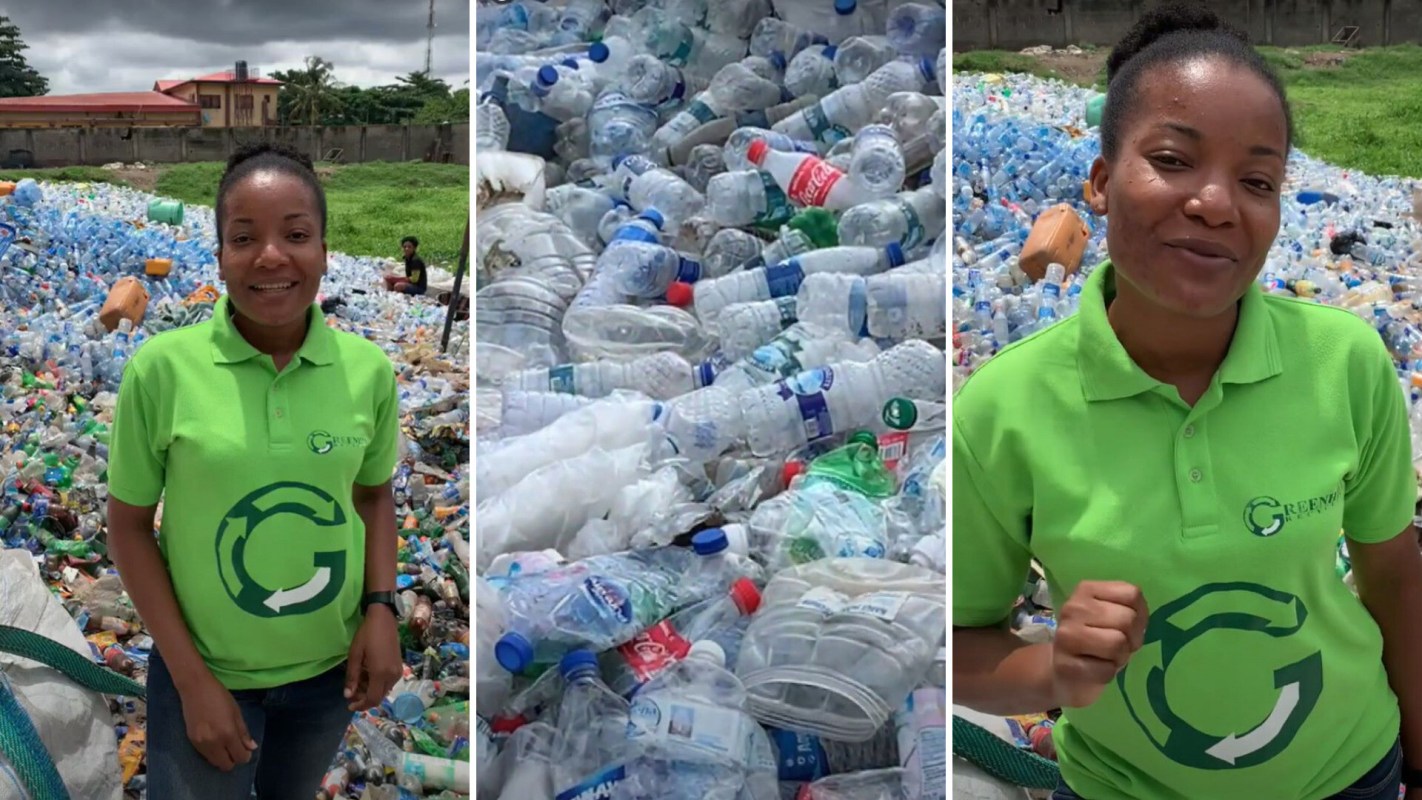Nigeria is one of the world's top 20 contributors to garbage in the ocean, according to data from the UN published by Al Jazeera — but Maryam Lawani is turning the tide with her Greenhill Recycling service.
Lawani lived in the Oshodi Isolo area of Lagos, a commercial area of Nigeria plagued with litter, including items flung from passing cars. The problem becomes especially obvious when it rains, as the excess water floods the streets and leaves trash behind when it recedes.
"I felt a strong need to prevent climate crises as a response to a personal pain point," Lawani told Al Jazeera.
Her response was to found Greenhill Recycling in 2015.
While this organization does include recycling services, it's also much more than that. Greenhill pays local residents for the trash they collect for pickup. That extra source of income is vital for many families, increasing their access to clothes, food, and education.
"We encourage and sensitize people not to [trash] waste but to bag them neatly in their homes," Lawani said. "We pick up from their doorstep, their homes, and not in dump sites."
The program's clever design improves the community on two fronts: There's less garbage lying around, and it helps money circulate in the area. Plus, Greenhill can send all that recyclable material to be processed into new products, reducing the need to manufacture more plastic.
That's great news because, as it is, we already make over 470 million tons of plastic each year worldwide, Al Jazeera revealed. Most of that plastic doesn't get recycled and instead ends up in landfills or the ocean. A shocking amount of it disintegrates into microplastics, which have turned up in bodies of water and even in the rain all around the world and likely carry a cancer risk.
Companies that recycle plastic trash into something useful are doing an incredible service for the world.
Olumide Idowu, executive director for the International Climate Change Initiative, told Al Jazeera, "As more individuals, businesses, and the government recognize the value of upcycling, it is likely that the sector will grow and contribute to a more sustainable and circular economy in Nigeria."
Join our free newsletter for cool news and actionable info that makes it easy to help yourself while helping the planet.









